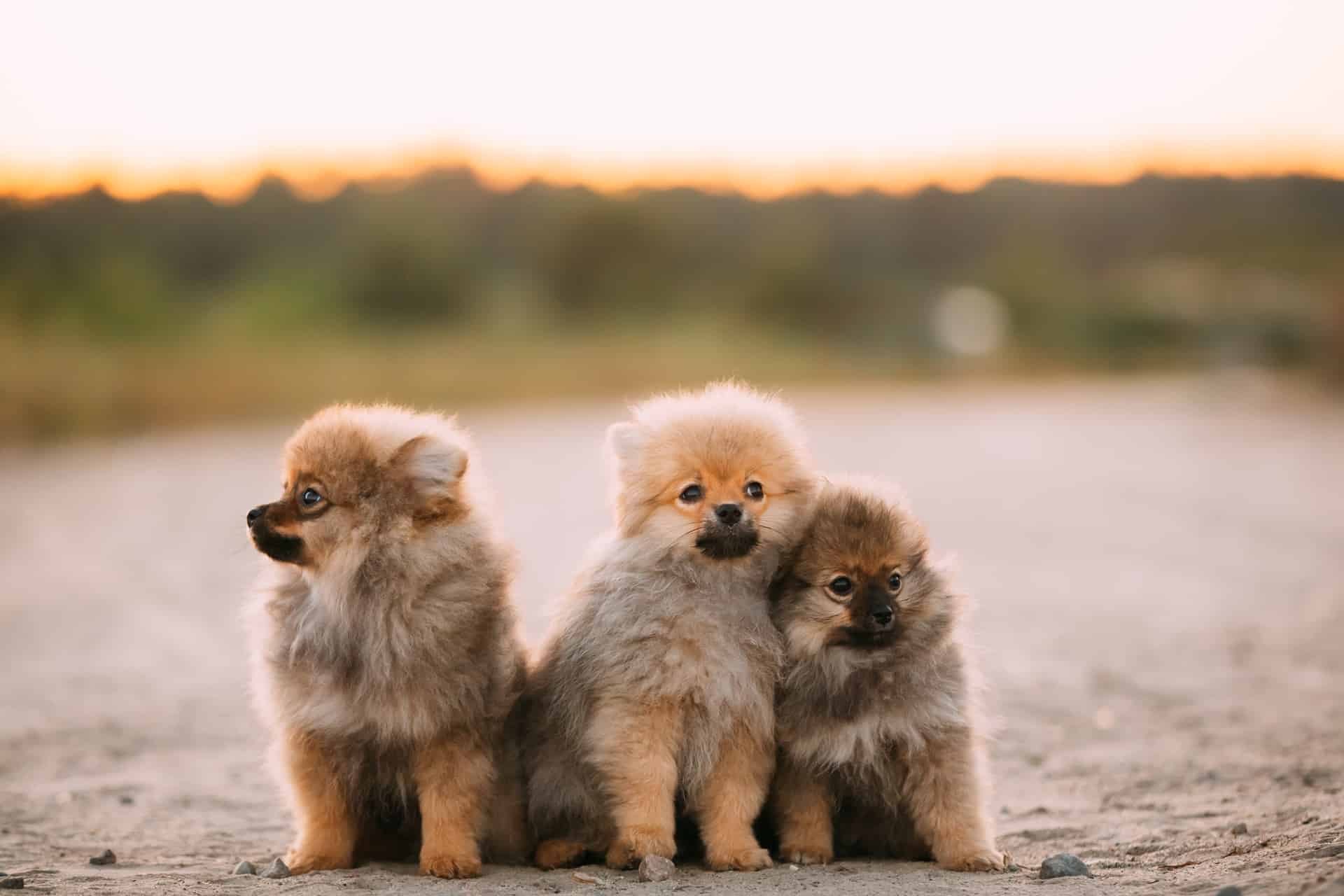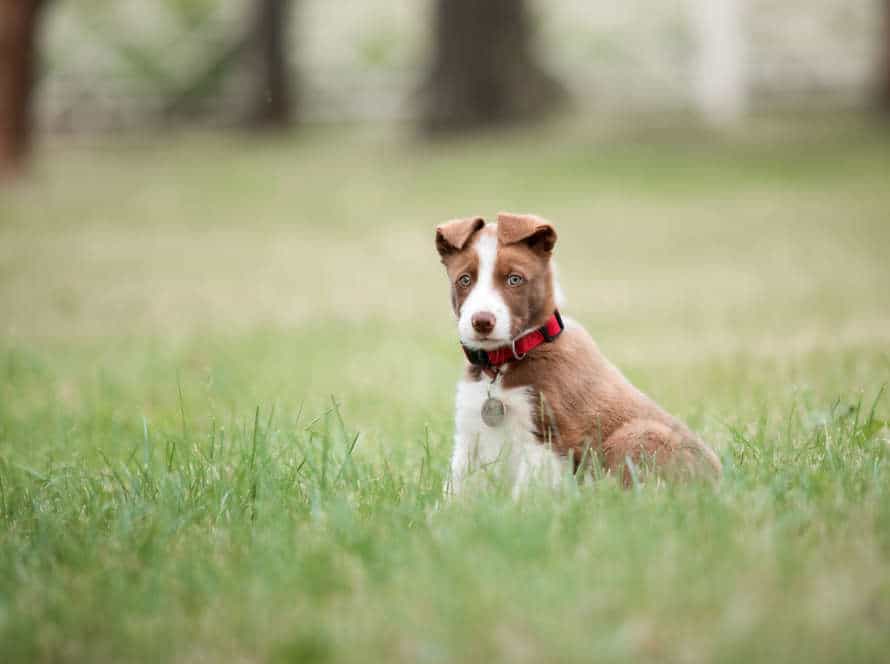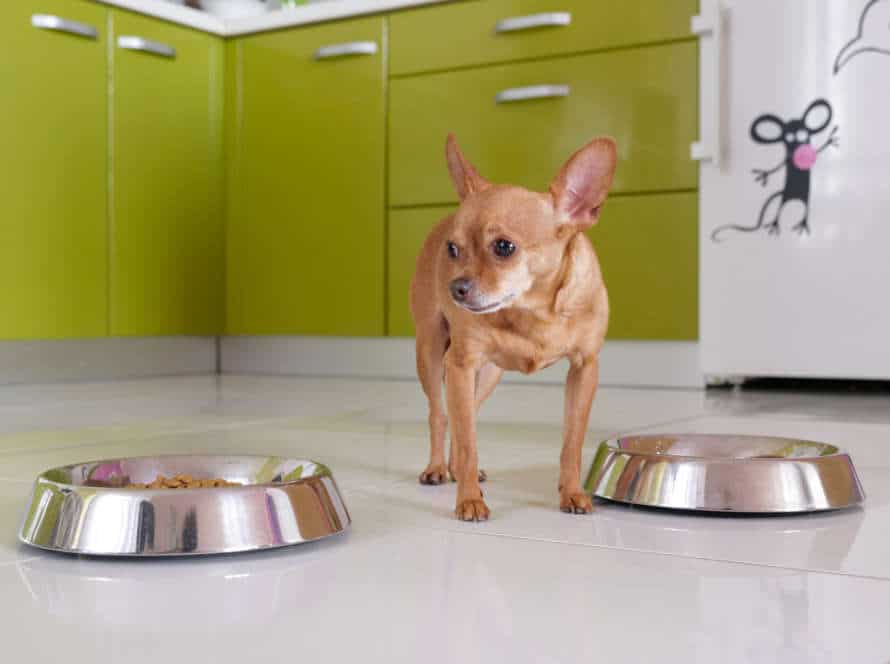The Neonatal Phase: Preparing Puppies for the World
The neonatal phase is a super-important time for puppies, as it sets the groundwork for their behavior and temperaments. It’s key to get them ready for the world! Here are the steps:
- Keep them warm and comfy with a bed. They can’t regulate body temperature yet.
- Handle them carefully and often. This’ll help them get used to human contact.
- Give them socialization chances. Introduce them to people, textures, sights, and sounds.
- Promote healthy eating habits. Give them high-quality puppy food and watch their weight.
By preparing your puppies during the neonatal phase, they’ll have a happy life!
Understanding the Neonatal Phase
Puppies’ neonatal phase – so important! During this time, they need their mommy for almost everything. Building a strong connection with mom and littermates is key. Let’s see what they learn and experience. Plus, how to prep them for their new life!
Definition of Neonatal Phase
The neonatal phase is the initial step of a pup’s life; it lasts from birth to two weeks old. In this period, pups are reliant on their mother for survival and experience speedy physical and behavioural growth.
Here are some vital points to grasp about the neonatal phase:
- Newborn pups have shut eyelids and ear canals and can’t balance their body temperature.
- Their primary activities are eating and sleeping.
- Their sense of smell and touch are highly developed whereas their sight and hearing will start to develop at around two weeks of age.
- Pups will start to crawl and investigate their environment during this phase but they’re unable to stand or walk.
- The mum’s role during this time is essential for guaranteeing that the pups are well-fed, clean, and cosy.
Pro tip: It is important to handle and expose pups to various stimuli during the neonatal phase to promote healthy socialization and prepare them for life outside of the litter.
Duration of Neonatal Phase
The neonatal phase is the first two weeks of a pup’s life. It varies by breed, but usually lasts birth to the end of week two. It is vital to keep pups warm and give them access to their mom’s milk. During this time they grow rapidly, physically and mentally.
As it wraps up, the puppies’ eyes will open and they will move around. It’s important to gently socialize them and get them used to people. Be patient and kind to give them a good start in the world.
Signs of Neonatal Puppies
The first two weeks of a puppy’s life is called the neonatal stage. This is when they rely entirely on their mom for survival. Knowing the signs of neonatal puppies is important to give them the care they need.
Look for these signs:
- Temperature: Newborns can’t regulate their body temp. Keep them warm with blankets or a heating pad.
- Nursing: Puppies should be nursing often for nutrition and antibodies.
- Weight: Weigh puppies regularly to make sure they’re gaining weight.
- Sleep: Neonatal puppies sleep a lot, usually in a pile with their littermates.
- Crying: If a pup cries too much, they could be hungry, cold, or sick.
As a pet owner, it’s important to be aware of these signs before bringing your puppy home.
Preparing the Living Environment
Puppies need a safe and supportive home during the neonatal phase. They cannot regulate their own temperature, take care of themselves, or respond to changes. To help them adjust, provide a welcoming and nurturing environment.
This section will explain how to prepare their living space.
Temperature Control
Temperature control is essential to create a healthy living environment for newborn puppies during their neonatal phase. Here are some tips:
- Use a heating pad or a heat lamp to keep them warm, especially in the first 1-2 weeks when they cannot regulate their body temperature. The ideal temperature should be 85-90°F (29-32°C).
- Monitor the temperature using a thermometer. Make sure it stays constant and does not fluctuate too much.
- Provide a cooler area they can move to if they get too warm. This can be a shaded area or a space without the heat source.
- Be cautious when using heating pads or lamps. Prevent overheating, burns, or fire hazards.
Stable temperature will help puppies thrive and prepare them for the world.
Comfortable Living Space
Creating a cozy home for your newborn pups is key for a healthy start in life. Remember, their neonatal phase is from birth to two weeks old. During this time, they need their mom and human caretakers for nourishment and warmth. Here are some tips to make a comfy living space:
- Use a spotless, warm place such as a whelping box or warm room.
- Provide a heat source like a heating pad or heat lamp. It should be 85-90°F in the first week and 80°F by the end of week two.
- Put bedding that’s soft and washable, like towels or blankets, in the whelping box.
- Keep everything clean and dry to avoid any illnesses.
- Pro tip: Handle newborn pups with care as they’re fragile. Wash your hands and any materials before handling them.
Proper Lighting
Lighting is important for newborn puppies. It’s essential for a safe, comfortable home. Here’s how you can provide the best lighting:
- Avoid bright lights. These may cause stress.
- Keep lights dim and soft.
- Red lighting or tinted light bulbs are best. Blue/white light can interfere with natural rhythms.
- Watch lighting carefully. Adjust if too hot/cold.
Follow these tips for a nurturing environment. This helps puppies during the neonatal phase.
Nutrition for Neonatal Puppies
Neonatal puppies need nutrition, just like human babies. To promote health and well-being, it’s essential to give them proper nutrition during this crucial stage. Here, we’ll explore the fundamentals of nutrition for newborn puppies and how to guarantee they get the proper nourishment.
Feeding Schedule and Frequency
To keep newborn pups healthy, it’s essential to create a proper feeding routine. Here’s how:
- From birth to 2 weeks: Feed every 2 hours, even during the night.
- 2-4 weeks: 3-4 hours between feedings.
- 4-8 weeks: Solid food mixed with milk replacer. Feed 4 times daily.
Don’t use cow’s milk – it can lead to diarrhea. Additionally, stimulate their bowels and bladders after each meal to ensure elimination.
Mother’s Milk or Replacement Milk
Neonatal puppies need proper nutrition for healthy growth and development. Mother’s milk is best for them, but if necessary, replacement milk can be given. Mother’s milk has nutrients, antibodies and growth factors that are key for the pups’ health. If the mother isn’t around, use commercial replacement milk with a high-quality formula that mimics mother’s milk.
Feed the neonatal puppies every 2-4 hours, depending on age and size. Use a syringe or nipple bottle and keep them warm.
For advice and adjustments, ask a vet or breeder. Proper nutrition during the neonatal phase helps puppies have a great life!
Pro tip: At the 3-4 week mark, start to introduce solid food and monitor their intake and digestion.
Importance of Colustrum
Colostrum is an essential nutrient for newborn puppies. It gives them important antibodies and nutrients to build their immunity and ready them for the world. Here are some of the key benefits:
- Antibodies: Colostrum has antibodies that are important for shielding puppies from infections and illnesses during the first weeks as their immune systems build up.
- Nutrients: It is rich in proteins, minerals, and vitamins that promote growth and development.
- Digestion: It’s easily digestible and helps form and strengthen their digestive systems.
Pro tip: Newborn puppies must have colostrum within the first 24 hours to get optimal nutrition and immunity.
Caring for Neonatal Puppies
Caring for a litter of puppies during their neonatal phase is both rewarding and challenging. For the first couple of weeks, they are totally reliant on their mother. Knowing the special needs of these pups is crucial to providing them with the best care.
Let’s look at the steps to caring for neonatal puppies!
- Keep the pups warm: Puppies can’t regulate their body temperature very well, so it’s important to keep them warm with a heat lamp, heating pad or hot water bottle. The temperature should be around 85-90°F.
- Feeding: Newborn puppies need to nurse every 2-3 hours. If the mother is unable to nurse, you will need to provide them with a milk replacer formula using a bottle or syringe. Ensure that they do not overeat as it can cause health problems.
- Stimulating elimination: Toileting is important in this stage and the mother would often lick their genital region to stimulate it. In case the mother is absent, use a warm, damp cloth to stimulate elimination after feeding.
- Monitor for health problems: Check for signs of malnutrition, dehydration, diarrhea or any other health issues. Check their temperature, weight and behavior regularly.
- Cleanliness: Keep the area where the puppies sleep clean, warm and dry. Use unscented wipes to clean their genital and anal areas after elimination to prevent infections.
Regular Check-ups
Regular check-ups are essential when caring for neonatal puppies during their developmental phase. Here are some tips to make sure they are healthy and thriving:
- Schedule regular visits with a veterinarian to monitor their health, growth, and development.
- Keep the puppies warm, clean, and fed. Plus, check their weight gain daily.
- Observe their behavior and watch out for signs of illness or distress, like lethargy, diarrhea, or vomiting.
- Avoid potentially harmful situations, like unvaccinated dogs and crowded or dirty areas.
By following these guidelines and getting regular vet check-ups, you can ensure the healthy development of your neonatal puppies and get them ready for the world.
Disease Prevention
Disease prevention is very important for newborn puppies. They can easily get ill, and the correct care can help avoid this. Here are some tips for the health of neonatal puppies:
- Cleanliness: Keep the room/area clean and disinfected using dog-friendly products. Also, wash hands before tending to puppies.
- Nutrition: The mother needs good food for her to produce rich milk for her puppies.
- Vaccination: The mother and puppies should get all the needed vaccinations.
- Temperature regulation: Puppies must stay warm and dry. Bedding and temperature should be around 85°F.
- Regular check-ups: Monitor the health of the puppies and visit a vet regularly.
By following these tips, we can prevent diseases and infections in neonatal puppies and get them ready for life.
Hygiene and Sanitation
Hygiene and sanitation are essential for the neonatal phase of puppy care. Here are some tips to remember:
- Use a disinfectant solution to clean any messes made by the puppies in the whelping area.
- Wash your hands before interacting with the puppies.
- Keep the puppies and the whelping area warm and dry.
- Clean their bedding frequently with a mild detergent.
- Handle the puppies gently to avoid injury or spreading germs.
Maintaining hygiene and sanitation will help your neonatal puppies stay healthy and grow into happy dogs.
Behavioral Training for Neonatal Puppies
Train your pup during their neonatal stage! Get them ready for their adult life. Begin training ASAP. Here’s how:
Focus on key behaviors during the neonatal period. This article will explain what those are.
Socialization
Socializing neonatal pups is vital. Their neonatal phase is a critical period of development that prepares them for their future. Here are tips to socialize neonatal puppies:
- Create a secure, loving setting.
- Expose them to different sounds, textures and smells.
- Make them comfortable around humans.
- Foster positive experiences with other animals.
- Introduce them to different people, places and situations gradually.
By providing proper socialization during the neonatal phase, it will help your puppies to become well-mannered and confident adults. Pro Tip: Consistent socialization is key for success. The more positive experiences, the better adjusted they will be!
Basic Training
Neonatal pup training is a must for their world prep! This phase is vital for their growth, so it’s essential to provide the correct training. Here are some tips:
- Start young – from two weeks old when they open their eyes and ears!
- Positive reinforcement – treats, applause, and love when they act well!
- Short sessions – around 10-15 min max, due to short attention spans.
- Socialize – introducing them to people, other animals, and new environments.
Pro tip: Consistent training is key. Stay faithful to a schedule and be patient – it takes time to get a content pup!
Environmental Enrichment.
Enriching the environment for neonatal puppies is essential. To do this, you should:
- Keep them warm with a heating pad or heat lamp.
- Introduce them to different sounds, smells, and textures. Gently handle them and play soft music. Offer various surfaces to rest on.
- Let them socialize with people and animals. And interact with their littermates.
- Stimulate their senses with toys or objects of different textures and shapes.
This way, the puppies learn and develop important cognitive and social skills, preparing them for the world.
Frequently Asked Questions
1. What is the neonatal phase?
The neonatal phase is the first two weeks of a puppy’s life where they are heavily dependent on their mother and littermates for survival. They are unable to regulate their own body temperature, cannot see or hear, and have limited mobility.
2. How can I prepare my puppies for the world during the neonatal phase?
It is essential to provide a comfortable and safe environment for the mother and puppies. Introduce gentle handling and socialization experiences such as being exposed to different sounds, textures, and smells. This helps prepare them for life outside the litter.
3. When should I start the weaning process?
The weaning process should begin around 3-4 weeks old, where the puppies start to develop teeth and can eat solid food. This process should be gradual to ensure proper nutrition and avoid digestive issues.
4. What vaccinations are necessary for my puppies during the neonatal phase?
Puppies receive vital antibodies from their mother’s milk during their first few weeks, but vaccinations start around 6 to 8 weeks old. The recommended vaccines include distemper, parvovirus, hepatitis, and rabies.
5. How often should I monitor my puppies during the neonatal phase?
Puppies should be monitored consistently throughout the neonatal phase, including maintaining a daily schedule of weighing, cleaning, and feeding. Any signs of distress, illness, or disease require immediate attention from a veterinarian.
6. How long does the neonatal phase last?
The neonatal phase typically lasts for the first two weeks of a puppy’s life. By the end of this phase, their eyes and ears should be open, and they will start to develop teeth and show more mobility.







